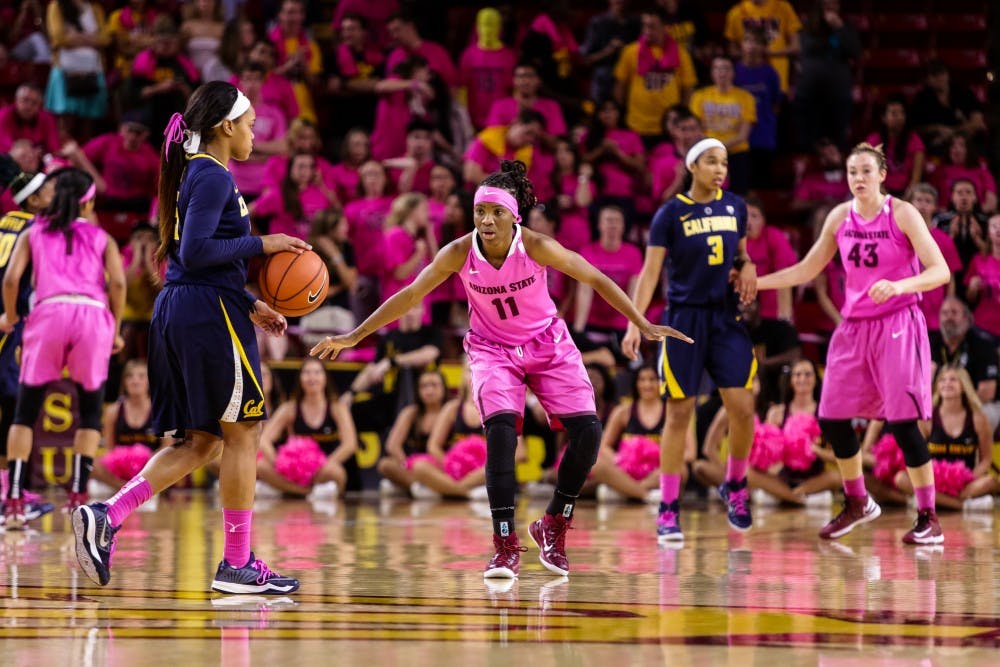With the Republican primary race whittling the conservative candidate list down for the looming presidential election, various “occupy” and protest movements gripping the nation and everybody on both sides of the partisan fence promising solutions for the struggling economy, it’s certainly an interesting time to be a young Republican.
At least that’s the consensus among College Republicans, an Arizona State University student organization where those who identify as politically right-of-center gather to discuss policy, meet notable Republican politicians (both local and national), work on campaigns and meet with like-minded students and staff. The last bit is something they have found difficult in a university setting that, in their estimation, can treat conservatives with indifference at best and with hostility at worst.
“We’re sometimes not even acknowledged, just completely passed over (in classroom discussions),” says Colton Morgan, a political science senior. “I feel like there’s not a lot of debate going on.”
Jake Bobay, a political science freshman, says about the same.
“All last semester I was in a class and there weren’t too many conservative kids,” Bobay says. “I was the only one saying those (conservative) points and I got a lot of crap for it, but I’m glad I was able to express myself and that I didn’t just shut up.”
The Republican primaries and the upcoming presidential election have energized the College Republicans. They understand how crucial the youth vote was in securing President Obama the win in 2008 and are determined to put their technological savvy and youthful vigor to use to aid their cause.
“Social networking was key in the 2008 election and it was the downfall of the Republican party,” says Sharath Patil, a freshman majoring in history. “The role of college students and young Republicans is to put those networks to use in getting our message out.”
Ashley Allen, a political science senior and club president, agrees that technology has a huge impact on young voters and that conservatives should be aware of it.
“There are a lot of default liberals out there,” Allen says. “A lot of, ‘Vote for this guy because he has a cool Facebook or he tweets a lot.’”
Getting involved on a grassroots level – making phone calls, walking neighborhoods, posting signs, using social media tools and manning the College Republicans table (usually out on campus once or twice a week) – is another way young Republicans have made their voices heard.
“Conservative youth need to look at their outlets,” says Katie Franquist, a justice studies junior. “You’ll never get turned down from a political campaign and local campaigns will actually reach out to College Republicans. (Going into the election,) everyone will know what they need.”
Franquist is vice president of the club and, like the majority of the members, feels like the economy is the crucial issue for the Republican Party and the United States as a whole.
“Right now I think the most important thing is the economy and getting jobs back in America,” Franquist says. “Especially with the Occupy Wall Street protest going on – I’m totally against that. I’m Reaganomics all the way and I support any candidate that can exemplify those ideals.”
This is the crux of this new generation of Republicans. In many ways, their approach hearkens back to old-school conservatism: a tight fiscal policy and a smaller government.
But their approach to social issues strays from the “family values” and Moral Majority-style religious zeal that many associate with conservative political rhetoric. The College Republicans are divided on the issues of abortion and gay marriage (they do not discuss them during meetings, reserving them for more heated debates over dinner) and most feel that the war on drugs is heavy-handed and unnecessary. Even more interesting: They don’t really care about these issues, at least right now.
“Society is very progressive now,” Franquist says about why she and her compatriots have diverged from the mainline view on these issues. “I support gay marriage. It goes against my conservative values, but I have friends and family members who are gay, so I’ve been exposed to it … We don’t care about social issues as much right now. Our first bullet point to take care of is the economy; social issues are our second bullet point.”
Rachel Anderson, a political science freshman and communications/public relations director of the club, says she agrees.
“I think people have misconceptions about Republicans,” Anderson says. “They think we’re all hard-line conservatives and that we’re closed-minded. We’re actually very open and like to hear other people’s perspectives.”
Another point of division is which candidate to support for the presidential election. Once a candidate is chosen, the club will throw all of its considerable support – attendance at its weekly meetings usually ranges between 50-75 people – behind him. Until then, they will debate the pros and cons of each nominee, in both light-hearted and intense discussions.
“I’m a Ron Paul supporter,” Anderson says. “We talk a lot about who we think would appeal to a majority of voters and who can connect to younger voters.”
Paul and former Massachusetts Gov. Mitt Romney seem to lead the polls in this crowd, although each candidate has supporters within the College Republicans ranks.
“We just want Obama out of office, regardless of who wins,” says Casey Jones, a business management sophomore and club secretary. “It’s such a big election and we’re excited to see how our country acts, who we vote for and how the youth of ASU will act, because this affects us.”
Contact the reporter at llemoine@asu.edu





